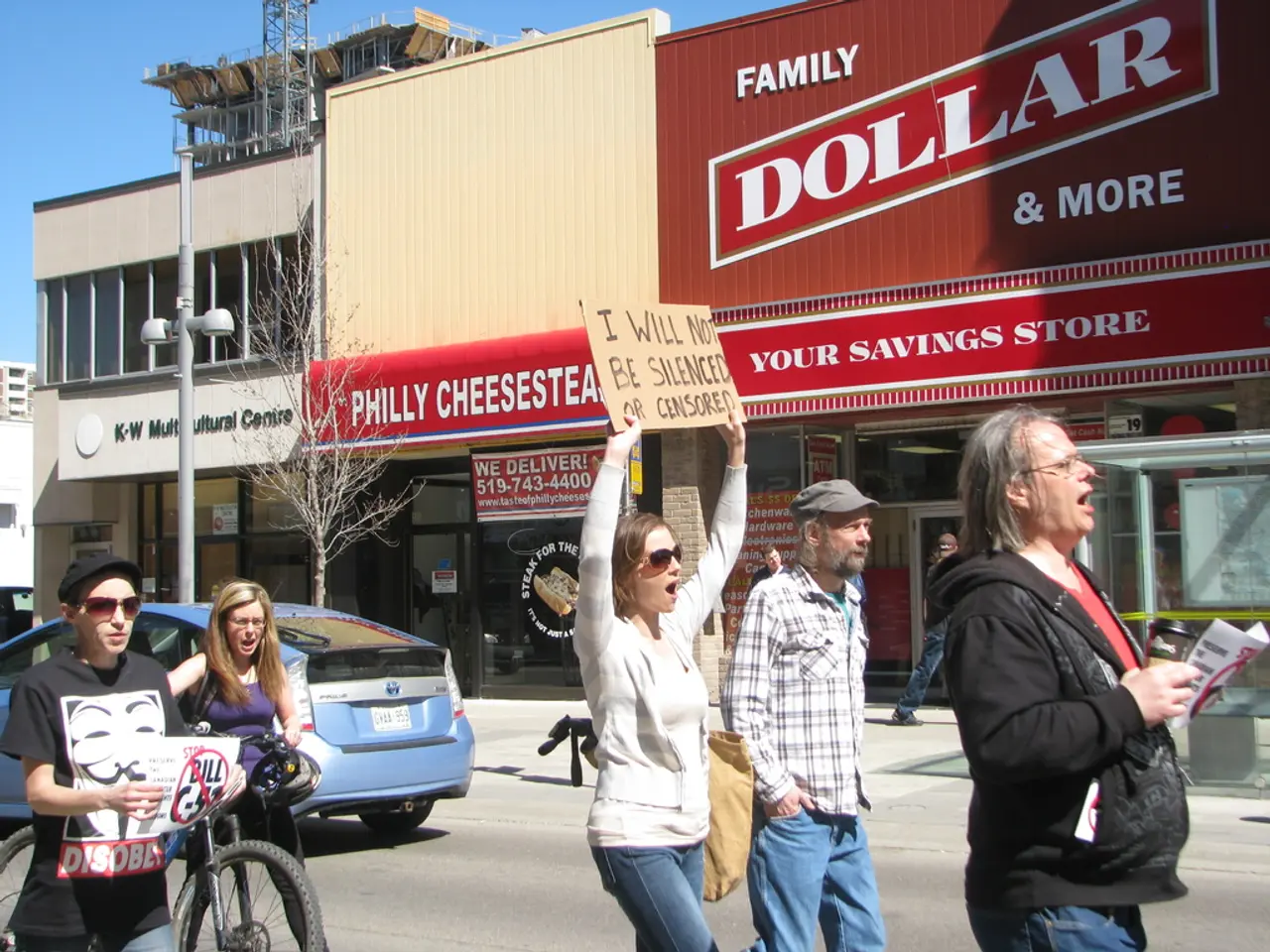Unions in France mount a strike, applying pressure on President Macron in response to austerity measures
Hundreds of Thousands Protest Against Austerity Measures in France
Hundreds of thousands of people took to the streets of France on Thursday, August 25, to voice their discontent with the government's proposed austerity measures. The protests, organized by unions, were aimed at urging President Emmanuel Macron and his new Prime Minister, Sebastien Lecornu, to acknowledge their anger and scrap looming budget cuts.
The groups behind the protests include left-wing parties, some trade unions, and taxi drivers, who are opposing Prime Minister François Bayrou's proposed austerity budget cuts and social benefit freezes. The protesters are calling for the previous government's fiscal plans to be scrapped, for more spending on public services, higher taxes on the wealthy, and for the reversal of an unpopular change making people work longer to get a pension.
Over 80,000 police and gendarmes were deployed throughout the day, including riot units, drones, and armored vehicles. More than 90 people had already been arrested on various sites. Clashes occurred on the margins of protest rallies in Nantes and Lyon, with injuries reported in Lyon.
The Interior Ministry predicted that up to 800,000 people would participate in the strikes and protests. According to Sophie Binet, the head of the CGT union, one in three primary school teachers were on strike nationwide, and nearly half in Paris. Teachers, train drivers, pharmacists, hospital staff, and teenagers were among those who went on strike as part of the day of protests.
Protesters caused traffic disruptions on a highway near Toulon, and regional trains were heavily affected, while most high-speed TGV train lines operated normally. The protests included gatherings at various high schools, such as the Lycee Maurice Ravel high school.
Lecornu has not yet revealed his plans for Bayrou's budget squeeze plan, but has signaled a willingness to compromise. Marylise Leon, the head of the CFDT union, said that Thursday's protests were a clear warning to Lecornu and that they want a socially fair budget. Sophie Binet stated that the anger and determination of the protesters is huge, and that her message to Mr. Lecornu is that it's the streets that must decide the budget.
The budget deficit in the euro zone's second largest economy was a source of concern for both investors and left-wing parties. Macron and Lecornu are under pressure from both protesters and left-wing parties opposed to budget cuts, as well as investors concerned about the deficit. Lecornu's predecessor was ousted by parliament over a 44 billion euro budget squeeze plan.
Fred, a bus driver and union representative, expressed anger towards the government and President Macron, stating that they cannot continue to treat workers this way. The protests are a reflection of the growing dissatisfaction among the French population with the government's fiscal policies.
Parliament is deeply divided and none of its three main groups have a majority, which will make it a battle for Lecornu to gather parliamentary support for a budget for 2026. The protests serve as a reminder that the government must address the concerns of its citizens and find a way to balance the budget without sacrificing the well-being of its people.
Read also:
- United States tariffs pose a threat to India, necessitating the recruitment of adept negotiators or strategists, similar to those who had influenced Trump's decisions.
- Weekly happenings in the German Federal Parliament (Bundestag)
- Southwest region's most popular posts, accompanied by an inquiry:
- Discussion between Putin and Trump in Alaska could potentially overshadow Ukraine's concerns








